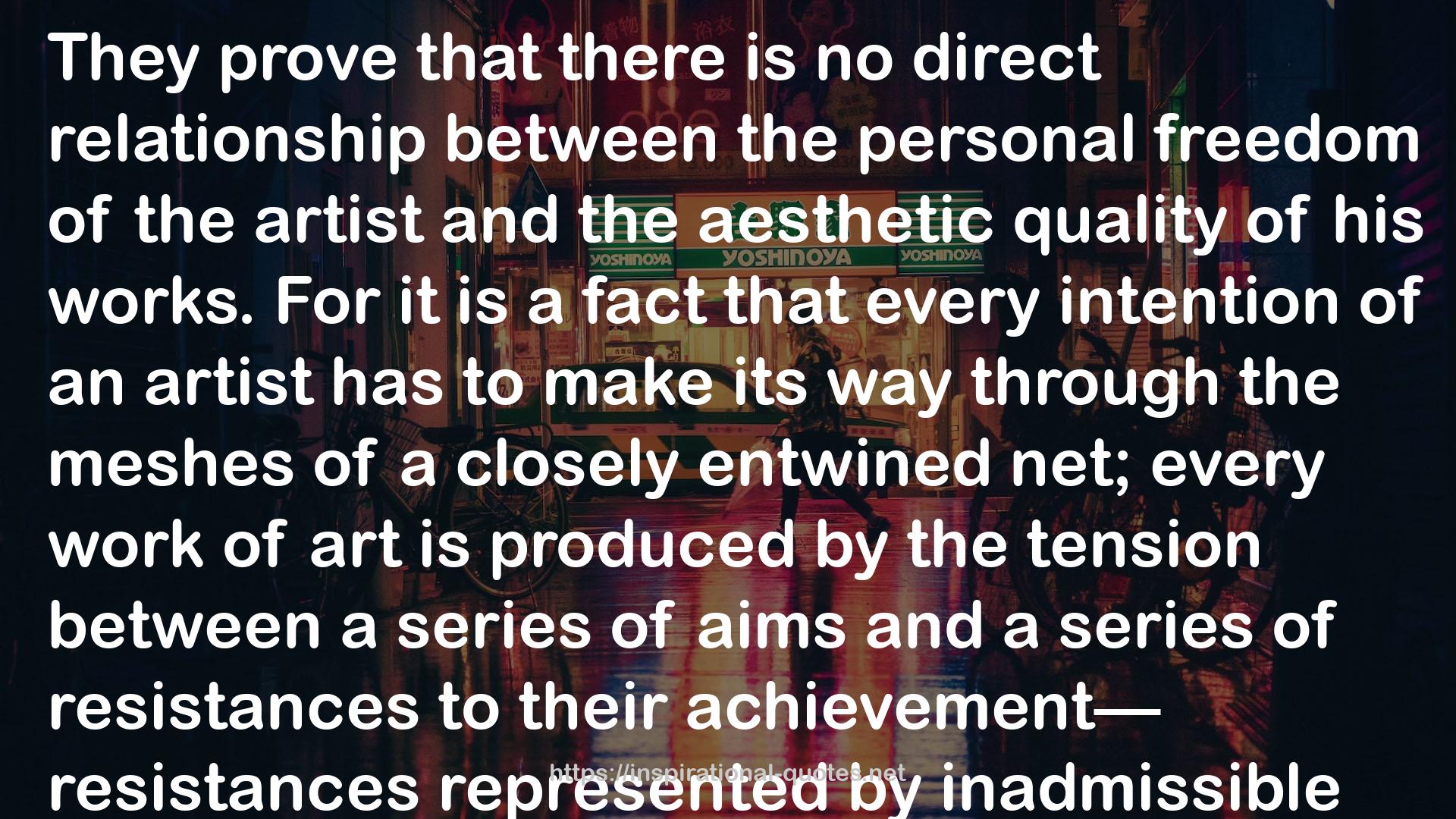" They prove that there is no direct relationship between the personal freedom of the artist and the aesthetic quality of his works. For it is a fact that every intention of an artist has to make its way through the meshes of a closely entwined net; every work of art is produced by the tension between a series of aims and a series of resistances to their achievement— resistances represented by inadmissible motifs, social prejudices and faulty powers of judgment of the public, and aims which have either already assimilated these resistances or stand openly and irreconcilably opposed to them. If the resistances in one direction are impossible to overcome, then the artist’s invention and powers of expression turn to a goal the way to which is not obstructed, and it is very unusual for him even to be aware of the fact that his achievement is a substitute for the real thing. Even in the most liberal democracy the artist does not move with perfect freedom and unrestraint; even there he is restricted by innumerable considerations foreign to his art. The different measure of freedom may be of the greatest importance for him personally but in principle there is no difference between the dictates of a despot and the conventions of even the most liberal social order. If force in itself were contrary to the spirit of art, perfect works of art could arise only in a state of complete anarchy. But in reality the pre-suppositions on which the aesthetic quality of a work depends lie beyond the alternative presented by political freedom and compulsion. Therefore the other extreme, namely, the assumption that the ties which restrict the artist’s freedom of movement are profitable and fruitful in themselves, that the freedom of the modern artist is consequently responsible for the inadequacies of modern art and that compulsion and restrictions could and should be produced artificially as the supposed guarantees of true ‘style’, —such an assumption is just as wrong as the anarchist point of view. "
― Arnold Hauser , The Social History of Art, Volume 1: From Prehistoric Times to the Middle Ages
